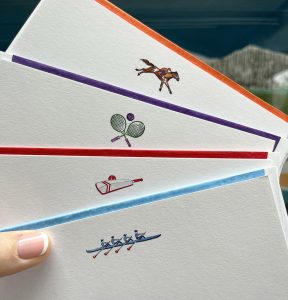The Great British summer. Though I’m usually a spectator via television rather than a ticket-holder, I just love all the social events that mark our summer season, starting with Chelsea Flower show and ending with the Last night of the Proms. I was intrigued to know more about the history of this summer social season and how it came about, so I’ve done a bit of digging.
Below is an overview of how England’s society events have evolved over time, reflecting the changing social, political, and cultural landscape of the country over centuries.
Medieval Period
It was all about feasts and banquets. Royal courts and noble households frequently held elaborate feasts and banquets, often to celebrate religious festivals, victories in battle, or significant life events like weddings.
Jousting tournaments were also popular, showcasing knights’ skills in combat and horsemanship.
Renaissance (16th and early 17th centuries)
The 1500s and 1600s was the time of ‘Masques’ – elaborate performances involving music, dance, and acting, often held in the courts of monarchs like Elizabeth I and James I.
The Elizabethan era saw increased patronage of the arts, with courtly entertainments including plays by Shakespeare and other playwrights.
18th Century
Much written about by Jane Austen, the 1700s saw the rise of balls and assemblies – social gatherings like balls became popular among the aristocracy and gentry. Assembly rooms in cities like Bath and London hosted regular events.
Meanwhile, intellectual and political discussions flourished in salons and coffee houses, with figures like Samuel Johnson and Edmund Burke frequenting these spaces.
19th Century
The 1800s was the defining period of English seasonal social events – The ‘London Season’ was born, with events like Royal Ascot, the Derby and Henley Regatta becoming key social fixtures.
Queen Victoria was a frequent host of Victorian balls and Soirées – these events were often grand affairs, with strict dress codes and elaborate decorations.
Early 20th Century
Garden parties became popular, especially among the middle and upper classes, often hosted in large country estates.
Debutante balls – as showcased in Bridgerton, young women from aristocratic families were presented to society at these formal events, signalling their entry into adult society.
Post-World War II
Charity Galas – as society became more egalitarian, charity events and fundraisers grew in prominence, often attended by celebrities and public figures.
Cultural festivals – Events like the Edinburgh Festival and the Hay Festival of Literature became key cultural events, attracting international attention.
Today
Sporting and cultural events – Events like Wimbledon, the British Grand Prix and the Chelsea Flower Show have become major social and cultural occasions.
Royal events – Weddings, jubilees, and other celebrations involving the British Royal Family remain significant, drawing global attention.
Inspired by the summer social season, I’ve created this collection of ready-to-order Social season cards. You can order them here.
The history of the British Summer social calendar
The Great British summer. Though I’m usually a spectator via television rather than a ticket-holder, I just love all the social events that mark our summer season, starting with Chelsea Flower show and ending with the Last night of the Proms. I was intrigued to know more about the history of this summer social season and how it came about, so I’ve done a bit of digging.
Below is an overview of how England’s society events have evolved over time, reflecting the changing social, political, and cultural landscape of the country over centuries.
Medieval Period
It was all about feasts and banquets. Royal courts and noble households frequently held elaborate feasts and banquets, often to celebrate religious festivals, victories in battle, or significant life events like weddings.
Jousting tournaments were also popular, showcasing knights’ skills in combat and horsemanship.
The 1500s and 1600s was the time of ‘Masques’ – elaborate performances involving music, dance, and acting, often held in the courts of monarchs like Elizabeth I and James I.
The Elizabethan era saw increased patronage of the arts, with courtly entertainments including plays by Shakespeare and other playwrights.
18th Century
Much written about by Jane Austen, the 1700s saw the rise of balls and assemblies – social gatherings like balls became popular among the aristocracy and gentry. Assembly rooms in cities like Bath and London hosted regular events.
Meanwhile, intellectual and political discussions flourished in salons and coffee houses, with figures like Samuel Johnson and Edmund Burke frequenting these spaces.
19th Century
The 1800s was the defining period of English seasonal social events – The ‘London Season’ was born, with events like Royal Ascot, the Derby and Henley Regatta becoming key social fixtures.
Queen Victoria was a frequent host of Victorian balls and Soirées – these events were often grand affairs, with strict dress codes and elaborate decorations.
Early 20th Century
Garden parties became popular, especially among the middle and upper classes, often hosted in large country estates.
Debutante balls – as showcased in Bridgerton, young women from aristocratic families were presented to society at these formal events, signalling their entry into adult society.
Post-World War II
Charity Galas – as society became more egalitarian, charity events and fundraisers grew in prominence, often attended by celebrities and public figures.
Cultural festivals – Events like the Edinburgh Festival and the Hay Festival of Literature became key cultural events, attracting international attention.
Today
Sporting and cultural events – Events like Wimbledon, the British Grand Prix and the Chelsea Flower Show have become major social and cultural occasions.
Royal events – Weddings, jubilees, and other celebrations involving the British Royal Family remain significant, drawing global attention.
Inspired by the summer social season, I’ve created this collection of ready-to-order Social se ason cards. You can order them here.
ason cards. You can order them here.